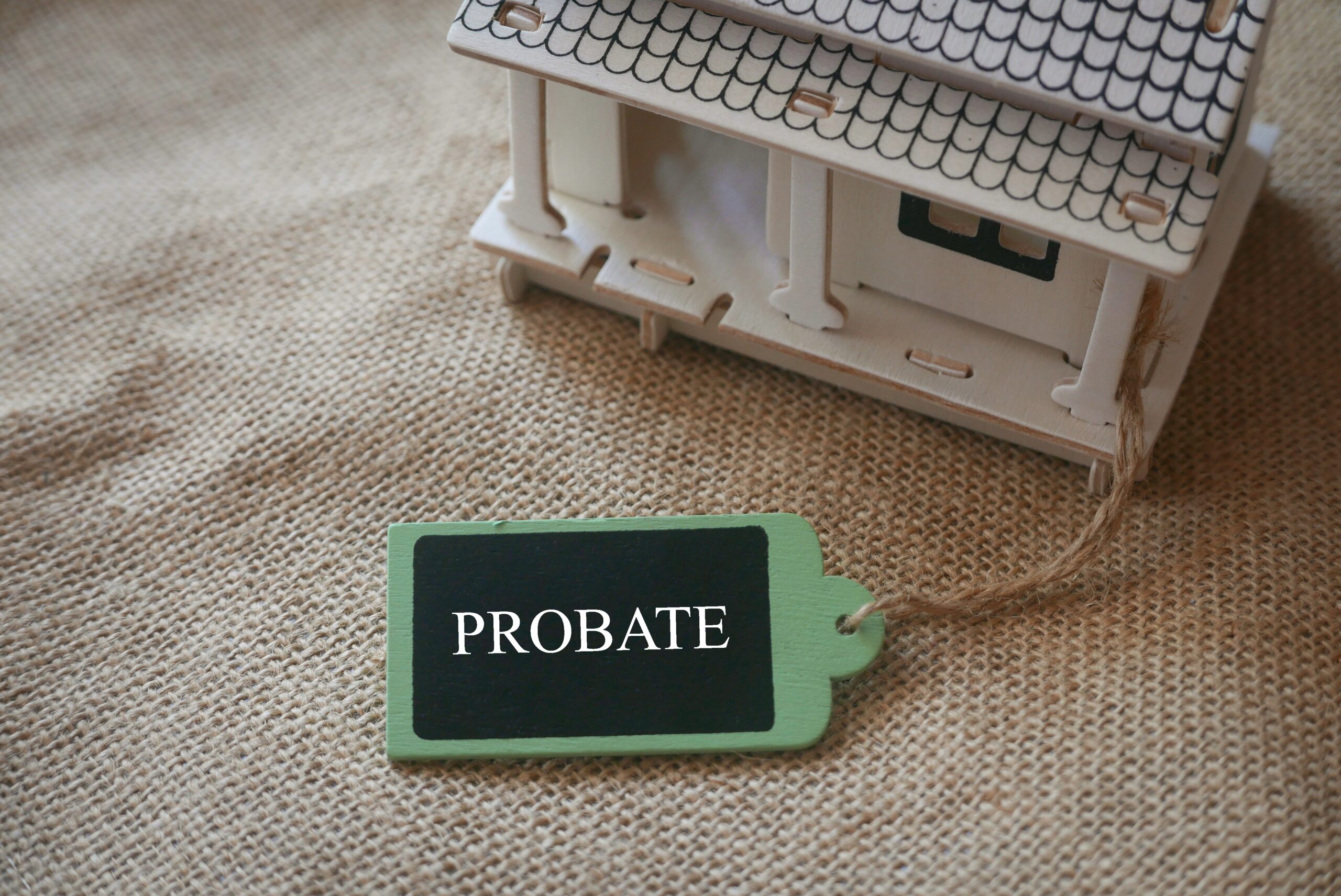Have you lost a loved one? Help is here to streamline your estate settlement.
Are you immersed in the complex world of probate in California? Losing a loved one is challenging, and understanding probate laws can feel overwhelming. This guide aims to clarify what’s involved and show how to navigate through the process. Given the complexity, consulting with an experienced attorney may be helpful. They can ensure all matters are accurately handled.
Quick Summary:
- Understanding Probate in California. Probate is a court-supervised process for transferring the property of a deceased person. The necessity of probate depends on the value and nature of the property owned by the deceased.
- Assets Subject to and Exempt from Probate. Not all assets need probate. Probate is usually required for assets in the decedent’s name, but life insurance and IRAs do not. A more straightforward method may apply to estates under $166,250.
- Navigating the Probate Process. Determining whether probate is necessary involves evaluating the deceased’s assets. According to California law, an executor named in the will or an administrator appointed by the court will manage the process.
- Role of a Personal Representative. The executor or administrator plays a crucial role in gathering the decedent’s assets, paying debts, and distributing leftovers to rightful heirs or beneficiaries.
- Legal Considerations and Support. Legal complexities make consulting with an experienced attorney advisable for smooth probate navigation. Executors can hire professionals, paid from the estate, to assist.
- Challenges and Time Frame. Probate in California can range from 6-9 months, potentially extending years in complex cases. Executors can receive compensation for their services and may need to secure a bond to protect the estate.
What is Probate?
Simply put, probate is the court-supervised procedure that allows the transfer or inheritance of a deceased person’s property, referred to legally as a “decedent.” All the legally owned property of the deceased constitutes the decedent’s “estate.” Having a will doesn’t automatically rule out probate; under specific circumstances, an estate may need to undergo probate.
Does the Estate Need to Go Through Probate?
Whether an estate has to go through probate in California depends on the nature and value of the property involved. Sometimes, you might not need to go to court to transfer or inherit the property.
Assets Subject to Probate
In California, not every asset the deceased owns requires probate for its transfer to beneficiaries. The probate process typically involves:
- Assets Solely in the Decedent’s Name. This encompasses any assets owned outright by the deceased, with no co-owners or beneficiary designations.
- Community Property Share. One-half of any assets listed as community property with the deceased person’s spouse will generally go through probate.
- Tenants in Common. The decedent’s share of assets owned in this manner, where the property is co-owned with others without survivorship rights, requires probate to transfer the deceased’s interest.
- Unregistered Personal Property. Items like jewelry, furniture, and other personal effects not officially registered also fall under probate assets.
An estate can bypass the formal probate process if valued under $166,250.00, excluding vehicles and specific other assets. California law offers a more streamlined procedure for transferring these lesser-valued assets. Additionally, for estates composed solely of community property going to a surviving spouse, a “spousal set aside” can be used to avoid probate.
Assets Exempt from Probate
Several types of assets can be transferred to heirs or designated beneficiaries without going through probate, including:
- Joint Tenancy. Assets co-owned in joint tenancy automatically pass to the surviving owner(s) upon death, bypassing probate.
- Living Trusts. Assets held in a living trust can be distributed without probate oversight.
- Designated Beneficiaries. Life insurance policies, IRAs, and other accounts with named beneficiaries go directly to those persons.
- “Payable on Death” (P.O.D.) or “Transfer on Death” (T.O.D.). These designations on accounts allow for direct transfer to beneficiaries.
- Surviving Spouses. Assets owned in the deceased’s name alone that are willed or passed by intestate succession to a surviving spouse may not require probate.
- Community Property with Right of Survivorship. This designation allows assets to be transferred to the surviving spouse without probate.
For married couples, where assets are considered community property, a “spousal confirmation proceeding” may confirm asset transfer to the surviving spouse, provided no objections arise. This process is notably quicker and less costly than traditional probate.
Navigating the Probate Process
Determining if a probate proceeding is necessary begins with evaluating assets. Probate is likely needed if assets exceed $166,250.00 in the deceased’s name and there are no designated survivors. Next, deciding who will administer the estate is crucial. This could be either an executor named in a will or an administrator appointed by the court. Despite the title, these persons have the fiduciary duty to manage and complete the estate’s settlement under California law.
It’s crucial to understand which assets need probate and which do not. This knowledge helps in efficiently managing a deceased person’s estate distribution. Yet, due to the legal intricacies, seeking advice from an experienced attorney is wise. An attorney can help smoothly navigate California’s probate process.
Who Is the Right Person to Handle Probate Matters?
Typically, the executor in the decedent’s will handles probate matters. When a will doesn’t exist or if the named executor is unable or unwilling to act, a close relative usually takes over the role. More than one person can jointly represent an estate, but they must always act in unison, ensuring the best interests of all involved.
In situations requiring probate, the court will appoint a personal representative. The preference, or priority, is typically given to the person named in the will and then follows a hierarchy of relatives: surviving spouse or domestic partner, child(ren), grandchild(ren), parents, and siblings. Even someone not named in a will but listed as a beneficiary can have a role in the proceedings.
Preparing to Initiate Probate
The executor or personal representative must lodge the original will with the court to set the probate process in motion. Copies of the will need to be sent to the named executor in the will or to a named beneficiary if the executor cannot be found.
The Role of a Personal Representative
The personal representative has a central role in the probate process. They have the responsibility to gather the decedent’s assets. They must pay any outstanding bills or debts. Afterward, they distribute any remaining assets. These are given to people legally entitled to them—the heirs or beneficiaries.
Figuring Out the Probate Process
Identifying the applicable probate process depends on understanding the decedent’s assets and liabilities. Personal representatives must organize all related information. This information is about what the decedent owned and owed. It helps determine the appropriate steps for probate. This task has many intricacies. Thus, consulting an attorney can be beneficial. An attorney can provide specific and tailored advice. Maintaining efficiency while managing the situation becomes more manageable with this legal help.
Legal Terms to Know
During probate in California, you’ll encounter numerous legal terms. Here are a few to help your understanding:
- Decedent. The person who has passed away.
- Estate. The property the decedent owned at the time of their death.
- Intestate succession. The laws determine inheritance if the person does not have a will or trust.
- Verified. Most documents filed in a probate court must be verified – or affirmed to be true “under penalty of perjury.”
The California probate process may seem daunting at first glance. However, a fundamental grasp of it can build confidence in tackling the situation.
FAQs About Probate in California
Can the Executor Delegate Responsibilities?
The executor can engage professionals like probate attorneys. This is allowed when their duties become overwhelming or time-consuming. The estate’s funds may also be used to pay for these services. This is permitted as long as they benefit the estate and sufficient funds are available. Professional guidance can lead to the successful completion of tasks. It can also shield the executor from personal liabilities.
What Might Cause a Will to Be Rejected or Revoked in Probate?
Probate often becomes complex during will disputes. A will may be rejected in probate if it is successfully argued by interested parties that it is illegitimate, usually stemming from concerns like undue influence, fraud, or the testator’s incapacity during the will’s creation. Challenges against a will’s validity can be initiated up to 120 days after admission into probate.
What Happens if There Are Disagreements Among Co-Executors?
When multiple adult siblings are named executors, issues may arise if they are geographically dispersed or if unanimous consent is needed for some decisions and disagreements among them. Such conflicts can extend the duration of the probate process.
What’s the Duration of Probate in California?
Procedures for probate in California ideally conclude within 6-9 months. Nonetheless, the process can extend to several years if there are complications, such as disputes over inheritance or if the decedent’s estate comprises hard-to-liquidate assets like real estate or business interests.
Can Executors Receive Remuneration in California?
In California, an executor can earn two fees—ordinary and extraordinary compensation—for their services. Ordinary compensation covers general administration duties and is calculated based on the value of the estate assets being probated, as per California Probate Code section 10800. Extraordinary compensation accounts for services beyond the standard executor roles and is subject to the court’s discretion.
Do Executors Need to Secure a Bond? What Might This Cost?
The probate court in California often requires the executor to acquire a probate bond. This bond safeguards the estate against the executor’s mismanagement. Beneficiaries can recover funds from the estate if the executor misappropriates them. The cost of this bond generally ranges between 0.5% and 0.8% of the estate’s total value.
Ready to Face the California Probate Process? Call Our Estate Planning Lawyer Now!
Dealing with California’s probate process can feel overwhelming. You may worry about correctly managing your loved one’s assets and stress about ensuring their wishes are respected. Century Trusts & Estate Planning can step in to help. Attorney Ashby Sorensen has over a decade of dedication. He has been helping families like yours.
Our focus is clear: estate planning. This includes wills, living trusts, and advanced healthcare directives. We provide personalized guidance. Our goal is to secure your family’s future. Our support isn’t limited to probate. We assist with all estate planning needs. We aim to protect your assets and give peace of mind to your loved ones. Don’t handle these critical decisions alone. Let’s discuss and formulate a plan. We will address all your concerns.




